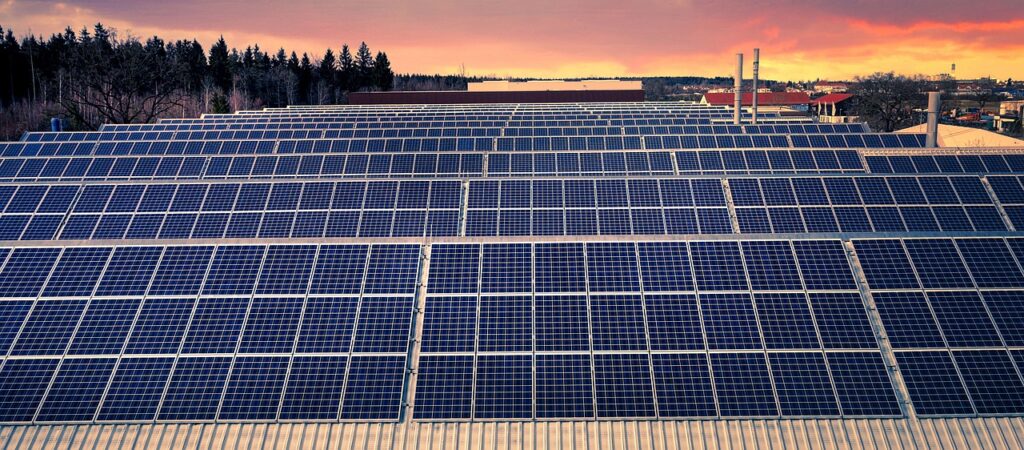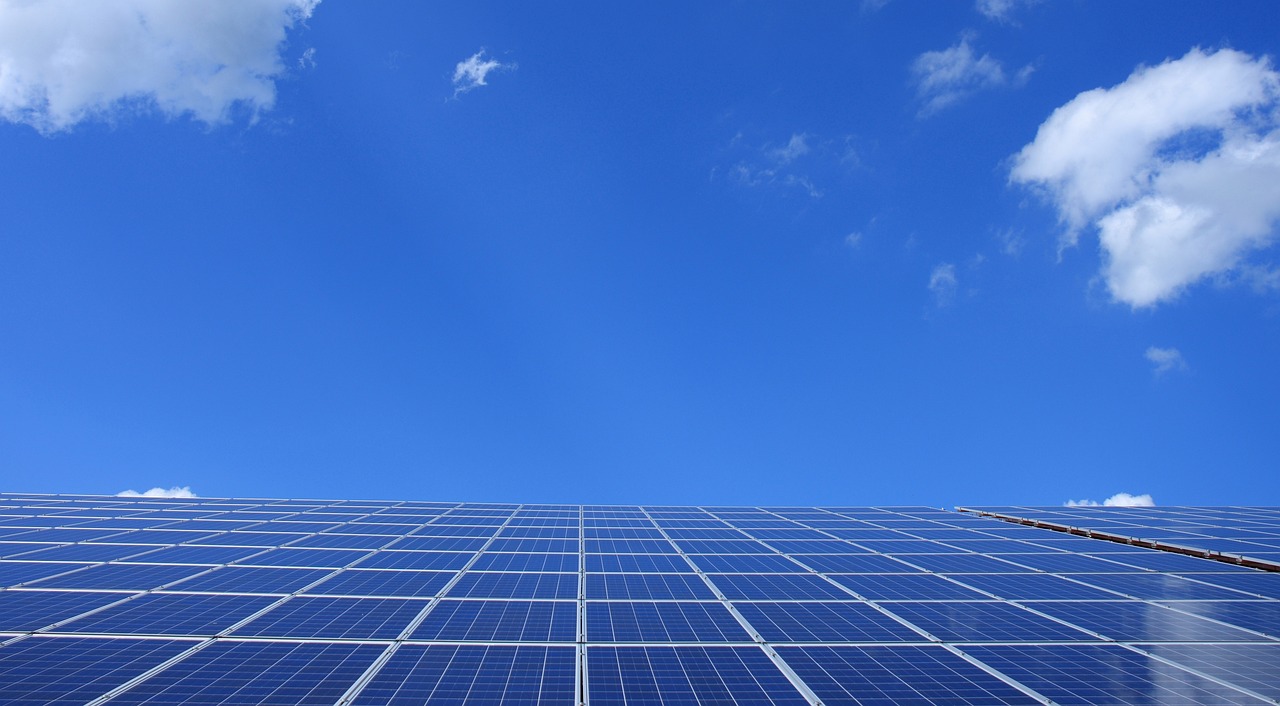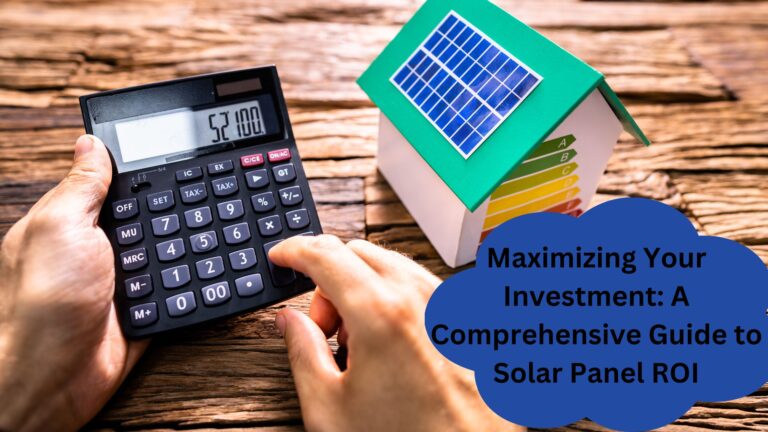Solar Loans: A Complete Guide for Solar Loans
The surge in the people’s interest towards environment have made solar panels extremely popular. Moreover, installing solar panels can be a great investment in the long run. But the upfront cost can be a significant barrier. This is where solar financing companies come in. Solar financing companies offer a range of financing options that make it easier to pay for the installation of solar panels. Or you can get solar loan.
Benefits of Financing Solar Panels
Financing solar panels has many benefits. First, it allows folks to enjoy the benefits of solar energy without having to pay the upfront costs. This means that they can start saving money on their electricity bills immediately. Without having to wait years to recoup their investment.
Second, financing solar panels can provide tax benefits. The federal government offers a tax credit of 26% of the total cost of solar panel installation. This tax credit can be applied to the loan that is used to finance the installation of solar panels.
Third, financing solar panels can increase the value of your property. Homes with solar panels are in high demand, and studies have shown that places with solar panels sell for more than places without them.
Personal Loans for Solar Financing
Personal loans are one option for financing solar panels. Personal loans are unsecured loans that can be used for any purpose, including financing solar panels. It is a good option for homeowners who have good credit and want to avoid using their home as collateral.
Personal loans also have fixed interest rates and fixed repayment terms, which makes budgeting easier for homeowners. However, personal loans often have higher interest rates than other types of solar financing options.
Pros & Cons
Pros of Personal Loans for Solar Financing:
- More accessible: Personal loans are generally easier to obtain compared to other financing options, such as home equity loans or PACE programs.
No collateral required: Unlike secured loans, personal loans do not require any collateral. Which means that you won’t risk losing your home or other assets if you default on the loan.
Quick funding:. Personal loans are often approved and funded within a matter of days, which is helpful when you need to make a quick purchase or start a solar project soon. - Competitive interest rates:. Personal loans typically have lower interest rates than credit cards, making them a more affordable option for financing solar projects.
Freedom to choose. With a personal loan, you have the freedom to choose your own solar installer and equipment, giving you more control over the process.
Cons of Personal Loans for Solar Financing:
- Higher interest rates: While personal loans generally have lower interest rates than credit cards, they are still often higher than other financing options, such as home equity loans or PACE programs.
- Shorter repayment periods: Personal loans typically have shorter repayment periods than other financing options, which can lead to higher monthly payments and a greater overall cost of borrowing.
- Strict credit requirements: Personal loans are unsecured, which means that lenders often have stricter credit requirements and may not approve borrowers with lower credit scores.
- Limited funding: Personal loans typically have a maximum loan amount, which may not be sufficient to cover the entire cost of a solar project.
- No tax benefits: Unlike other financing options, such as home equity loans or PACE programs, personal loans do not offer any tax benefits or deductions for interest paid on the loan.
Home Equity Financing for Solar Panels
Home equity financing is another option for financing solar panels. Home equity financing allows consumers to borrow against the equity in their home. It typically has lower interest rates than personal loans, making it a more affordable option for homeowners.
However, home equity financing requires homeowners to use their home as collateral. This means risk of losing their home if they are unable to repay the loan.
Pros & Cons
Pros of Home Equity Financing for Solar Panels:
- Lower interest rates compared to personal loans and credit cards.
- Longer repayment terms, which can make monthly payments more affordable.
- Potential tax benefits as the interest paid on home equity loans may be tax-deductible.
- Increases the value of your home by installing a solar panel system.
Cons of Home Equity Financing for Solar Panels:
- Risk of losing your home if you can’t make payments, as home equity loans are secured by your property.
- Upfront costs, such as appraisal and closing fees, can be expensive.
- May take longer to obtain approval and funding compared to personal loans.
- If you sell your home before paying off the loan, the proceeds from the sale will be used to pay off the loan.
FHA 203(k) Loan for Solar Panels
FHA 203(k) loans are another option for financing solar panels. It is backed by the Federal Housing Administration and are designed to help homeowners finance home improvements, including solar panel installation.
This has lower interest rates than personal loans and do not require customers to use their home as collateral. However, it has stricter eligibility requirements and longer processing times than other types of financing options.
Pros & Cons
Pros of FHA 203(k) Loan for Solar Panels:
- Increased borrowing limit: The maximum loan amount available through an FHA 203(k) loan is higher compared to other types of loans, allowing homeowners to finance larger solar projects.
- Lower credit score requirements: FHA 203(k) loans typically have lower credit score requirements, making them more accessible to homeowners who may not qualify for other financing options.
- Low down payment: The down payment required for an FHA 203(k) loan is typically lower than traditional loans, freeing up cash for solar panel installation.
- Flexible repayment terms: The repayment terms for an FHA 203(k) loan are flexible, allowing homeowners to customize the loan to fit their unique financial situation.

Cons of FHA 203(k) Loan for Solar Panels:
- Requires FHA-approved contractor: The loan requires homeowners to use an FHA-approved contractor for the solar panel installation, which can limit the options for contractors and potentially increase costs.
- Requires mortgage insurance: Homeowners are required to pay mortgage insurance on an FHA 203(k) loan, which can increase the overall cost of the loan.
- Complex application process: The application process for an FHA 203(k) loan can be complex and time-consuming, requiring detailed documentation and multiple inspections.
- Interest rates may be higher: The interest rates for an FHA 203(k) loan may be higher compared to other types of loans, increasing the overall cost of the solar panel installation.
Contractor Financing for Solar Panels
Contractor financing is another option for financing solar panels. It is offered by solar panel installation companies and allows folks to finance the installation of solar panels directly through the company.
This can be a good option for consumers who are unable to obtain financing through other means. However, contractor financing often has higher interest rates than other types of solar financing options.
Pros & Cons
Pros of Contractor Financing for Solar Panels:
- Easy application process with quick approval, as contractors often have a relationship with financing companies.
- No upfront costs or down payments required, making it an option for those who don’t have cash on hand.
- Repayment terms may be flexible, allowing borrowers to choose the length of their loan term and monthly payments that fit their budget.
- Some contractors offer incentives such as discounts or rebates for choosing their financing options.
Cons of Contractor Financing for Solar Panels:
- Interest rates may be higher compared to other financing options such as home equity loans or personal loans.
- Some financing companies may require a lien on the borrower’s property as collateral, putting their home at risk if they default on the loan.
- Contractor financing options may only be available through a limited number of solar installers, reducing options for borrowers to shop around for the best deal.
- Contractors may be incentivized to push financing options that benefit them more than the borrower, potentially leading to higher costs in the long run.
Top Solar Financing Companies in the USA
There are many solar financing companies in the USA, but not all of them are created equal. Here are some of the top solar financing companies in the USA:
- Sunlight Financial – Sunlight Financial offers a range of financing options, including personal loans, home equity financing, and contractor financing. Sunlight Financial has competitive interest rates and flexible repayment terms.
- LoanPal – LoanPal offers a range of financing options, including personal loans, home equity financing, and contractor financing. LoanPal has a fast and easy application process and offers competitive interest rates.
- Mosaic – Mosaic offers a range of financing options, including home equity financing and contractor financing. Mosaic has competitive interest rates and offers a fast and easy application process.
- Dividend Finance – Dividend Finance offers a range of financing options, including personal loans, home equity financing, and contractor financing. Dividend Finance has competitive interest rates and offers flexible repayment terms.
Comparison of Solar Financing Companies
When choosing a solar financing company, it’s important to compare the different options available. Here’s a comparison of the top solar financing companies in the USA:
| Solar Financing Company | Types of Financing Available | Interest Rates | Repayment Terms |
| Sunlight Financial | Personal loans, home equity financing, contractor financing | Competitive | Flexible |
| LoanPal | Personal loans, home equity financing, contractor financing | Competitive | Flexible |
| Mosaic | Home equity financing, contractor financing | Competitive | Flexible |
| Dividend Finance | Personal loans, home equity financing, contractor financing | Competitive | Flexible |
Choosing the Right Solar Financing Company for You
- When choosing a solar financing company, it’s important to consider your individual needs and financial situation. Here are some factors to consider when choosing a solar financing company:
- Interest rates – Look for a company with competitive interest rates that fit within your budget.
- Repayment terms – Look for a company with flexible repayment terms that fit within your budget.
- Eligibility requirements – Make sure you meet the eligibility requirements for the financing options offered by the company.
- Customer service – Look for a company with good customer service that is responsive to your needs.
Solar panels are a great investment for homeowners who want to save money on their electricity bills and reduce their carbon footprint. Solar financing companies offer a range of financing options that make it easier for homeowners to pay for the installation of solar panels. When choosing a solar financing company, it’s important to consider your individual needs and financial situation. By comparing the top solar financing companies in the USA and considering the factors mentioned above, you can choose the right solar financing company for you.

Solar Energy Engineer, Founder of Solar Panel Guide Blog, and passionate advocate for a sustainable future. ☀️🌿 #SolarEnergy #Renewables Read More About Peter

